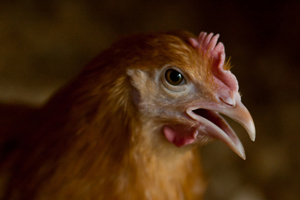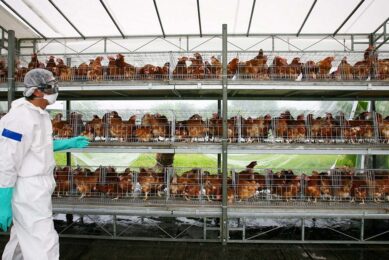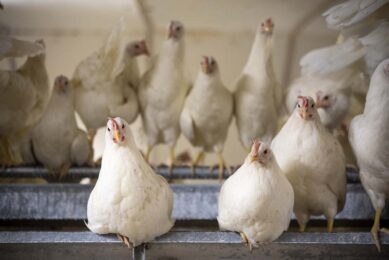Benefits of vitamin C against heat stress in poultry

Scientists in Pakistan looked at the beneficial effects of ascorbic acid (Vitamin C) supplementation during periods of heat stress, a big threat to poultry in Pakistan.
By: Z Abidin and A Khatoon
Pakistan is an agro-livestock based economy with a poultry share of 55% in total agricultural GDP (21%). The environment in Pakistan remains hot and humid during July to August, which renders the survival of poultry critical during these months, as birds are more susceptible to changing environments than other domestic animals
Heat stress is a combination of high environmental temperature and humidity hindering proper thermoregulatory processes. It diminishes immunity, feed intake, weight gain, egg production, number of chicks per hen, hatchability of fertile eggs, egg and carcass quality, mineral balance, and increases panting and mortality and affects semen quality and fertility in male birds.
Ascorbic acid (vitamin C), a white crystalline compound (also known as L-ascorbic acid) is primarily synthesised in the chicken by the kidneys, however, during heat stress, endogenous ascorbic acid becomes insufficient to meet the bird’s requirements. Vitamin C ameliorates heat stress induced problems such as poor immunity, feed intake, weight gain, oxidative stress, rectal and body temperature, fertility and semen quality, carcass weight and mortality in birds.
| This is an abstract from the World ‘s Poultry Science Association’s Journal. To purchase report options: Purchase this report from Cambridge Journals Subscribe to WPSA journal (already a WPSA member) Become a WPSA member (word file) (pdf file) |
Join 31,000+ subscribers
Subscribe to our newsletter to stay updated about all the need-to-know content in the poultry sector, three times a week. Beheer
Beheer








 WP Admin
WP Admin  Bewerk bericht
Bewerk bericht